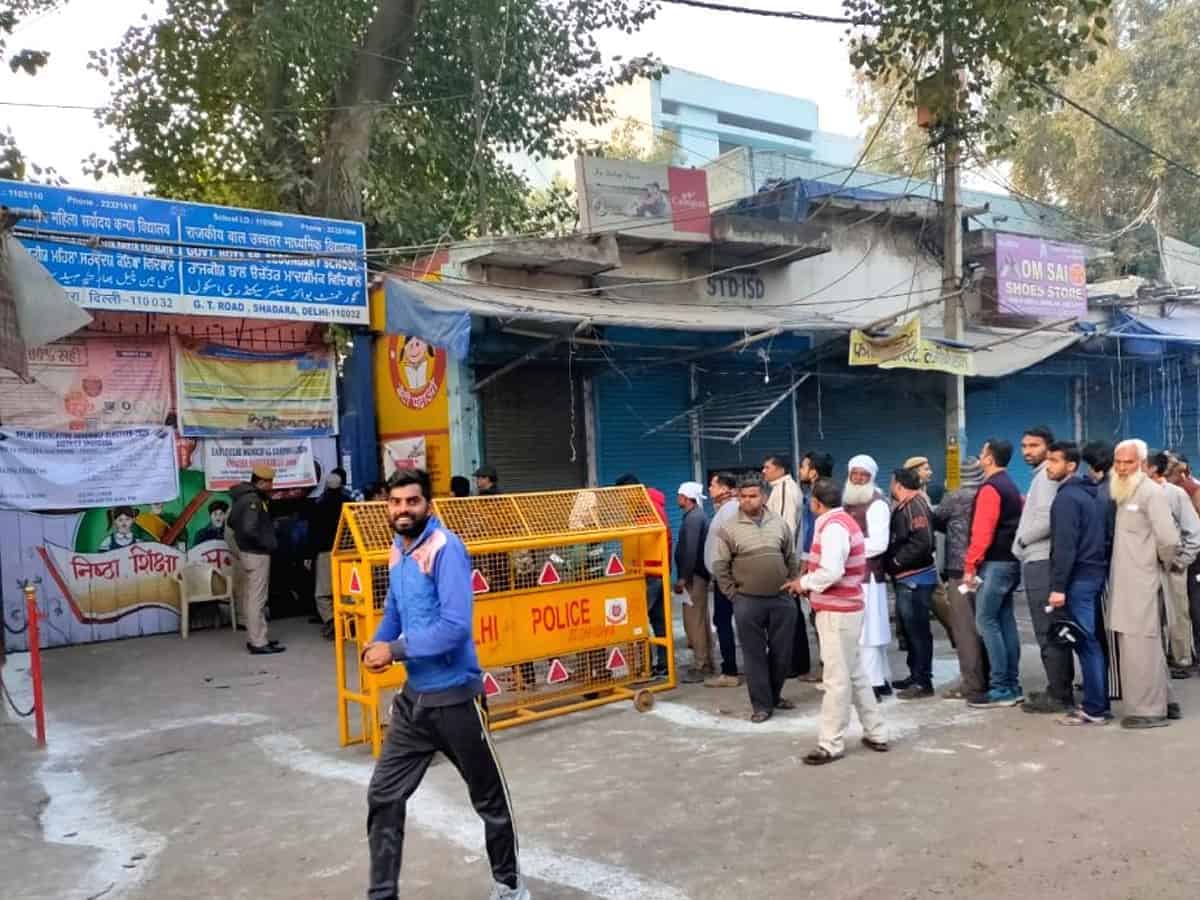NEW DELHI: Delhi has recorded an estimated 27.48 per cent peaceful voter turnout till 1 pm on Saturday with 1.47 crore eligible voters expected to cast their votes in the election for the 70-member Delhi assembly.
The early hours saw low polling as very few voters chose to brave the early morning chill to cast their franchise even after the polling began at 8am in bright sunshine amid tight security. There are 672 candidates in the fray to elect a new government.
The estimated turnout for north east Delhi till 2 pm was 34.82 per cent, according to the Election Commission’s Voter Turnout App. Area-wise, east Delhi reported 31.31 per cent polling, north west Delhi 28.78 per cent, west 26.77 per cent, south 26.71 per cent, south west 23.25 per cent and Central 25.36 per cent turnout, the app said.
Delhi had recorded a voter turnout of 67.12 per cent in the last assembly polls held in 2015.
There are 81,05,236 male voters, 66,80,277 female voters and 869 third gender voters. They queued up to vote in the 13,570 polling booths across 2,689 areas in the national capital.
President Ram Nath Kovind, Delhi chief minister Arvind Kejriwal, Union ministers Harsh Vardhan and S. Jaishankar were among various MPs, including controversial BJP leader Parvesh Sahib Singh Verma, who cast their votes early morning along with their families.
Kejriwal, who is seeking another term from the New Delhi constituency, cast his vote along with his father, mother and wife at a polling booth in Rajpura transport authority in Civil Lines area amid tight security.
Congress interim chief Sonia Gandhi, former Prime Minister Manmohan Singh and former party President Rahul Gandhi turned up at the polling stations early in the day.
Sonia Gandhi, who was discharged from hospital after four days following stomach infection, arrived at a polling booth in central Delhi’s Nirman Bhawan.
Former Prime Minister Manmohan Singh also exercised his franchise at the Nirman Bhawan polling station.
Rahul Gandhi, Congress MP from Kerala’s Wayanad, also cast his vote at the NP Senior Secondary School in Aurangzeb Lane here.
A polling officer, Udham Singh, posted at Babarpur assembly constituency in east Delhi died due to cardiac arrest.
There was enthusiasm among voters of Neb Sarai, one of Asia’s largest unauthorised colonies, as young voters came out in large numbers to exercise their right to choose their representative.
The polling will end at 6pm and the results will be announced on February 11.
In the election, the ruling Aam Aadmi Party (AAP) is making yet another attempt to return to power, while the Bharatiya Janata Party is determined to stage a comeback after 20 years. The Congress, which ruled Delhi for 15 years, is expecting a resurgence in its vote share.
In the last elections, Arvind Kejriwal-led AAP had registered a landslide victory by winning 67 of the 70 seats. The BJP had got three seats and the Congress drew a blank.
The AAP is contesting on all the 70 seats, while the BJP has fielded its candidates on 67 seats and has left three seats for its allies – two for Janata Dal (United) and one for Lok Janshakti Party (LJP).
On the other hand, Congress is contesting on 66 seats and has given four seats to its ally Rashtriya Janata Dal (RJD).
The Election Commission has identified 516 locations and 3,704 polling booths as critical voting stations along with 144 vulnerable polling stations and 102 expenditure sensitive pockets where paramilitary forces have been deployed. Activities at each polling station are being monitored through webcasting.
All the five polling stations in Shaheen Bagh, the epicentre of anti-CAA protests, have been declared “critical” by Delhi’s chief electoral officer (CEO).
The police have deployed around 40,000 security personnel, 19,000 home guards and 190 companies of Central Armed Police Forces to ensure smooth conduct of the polls.

